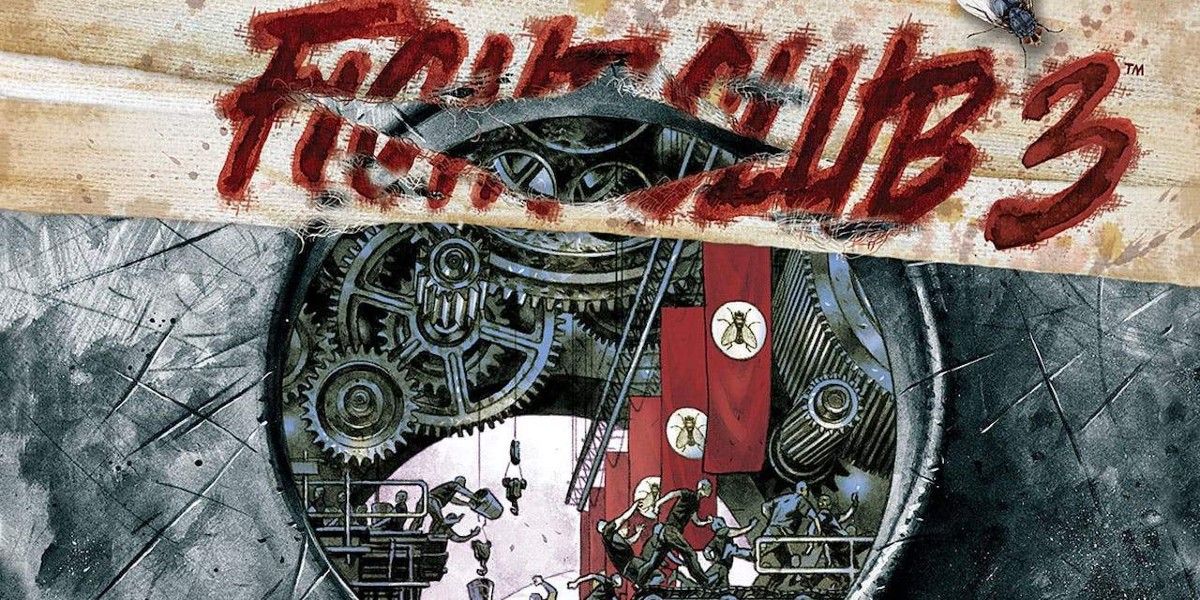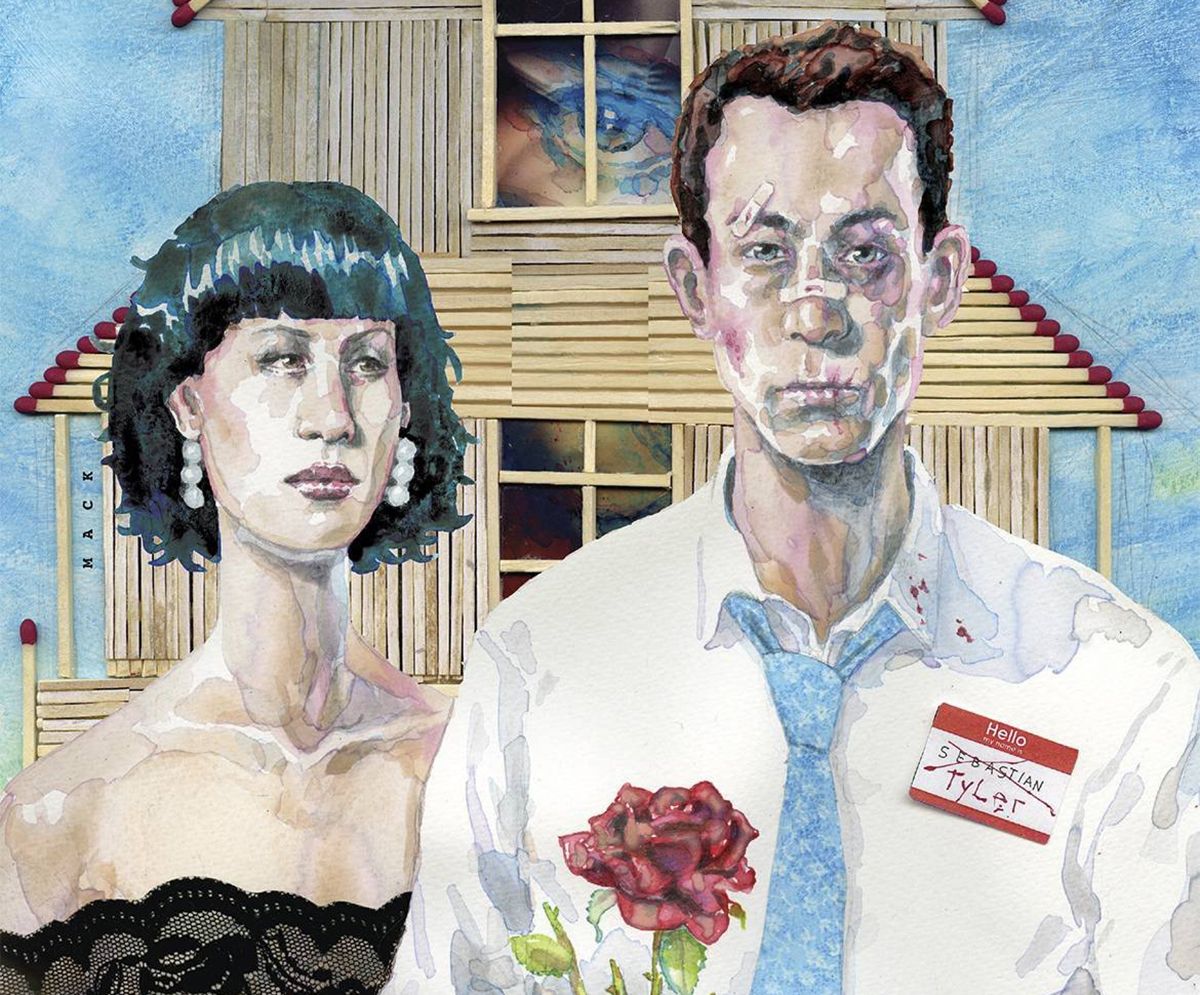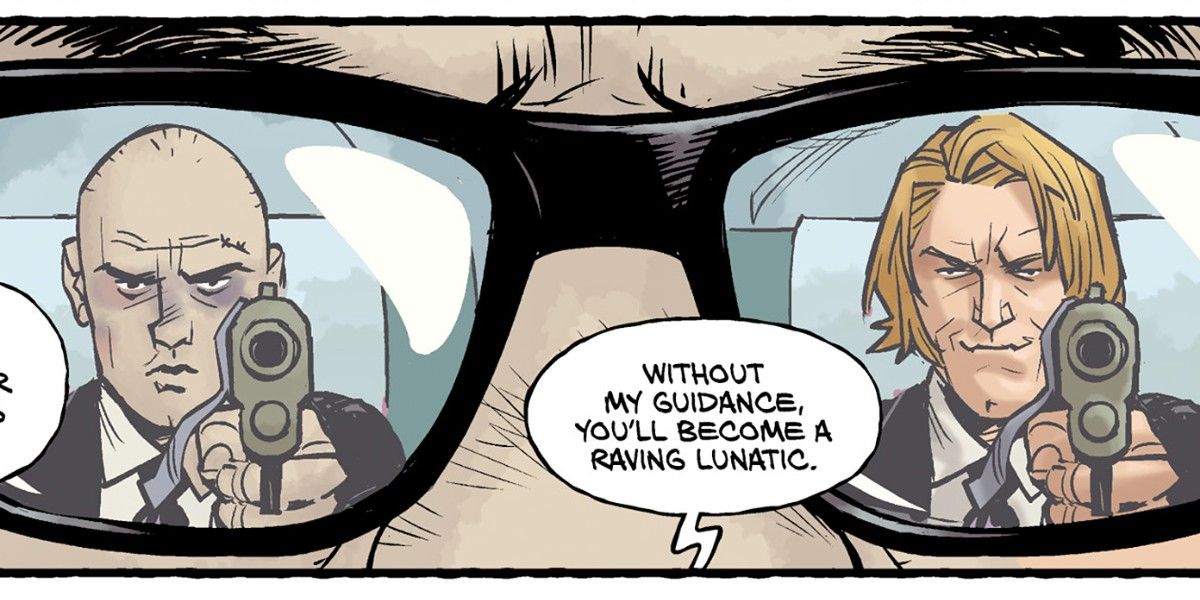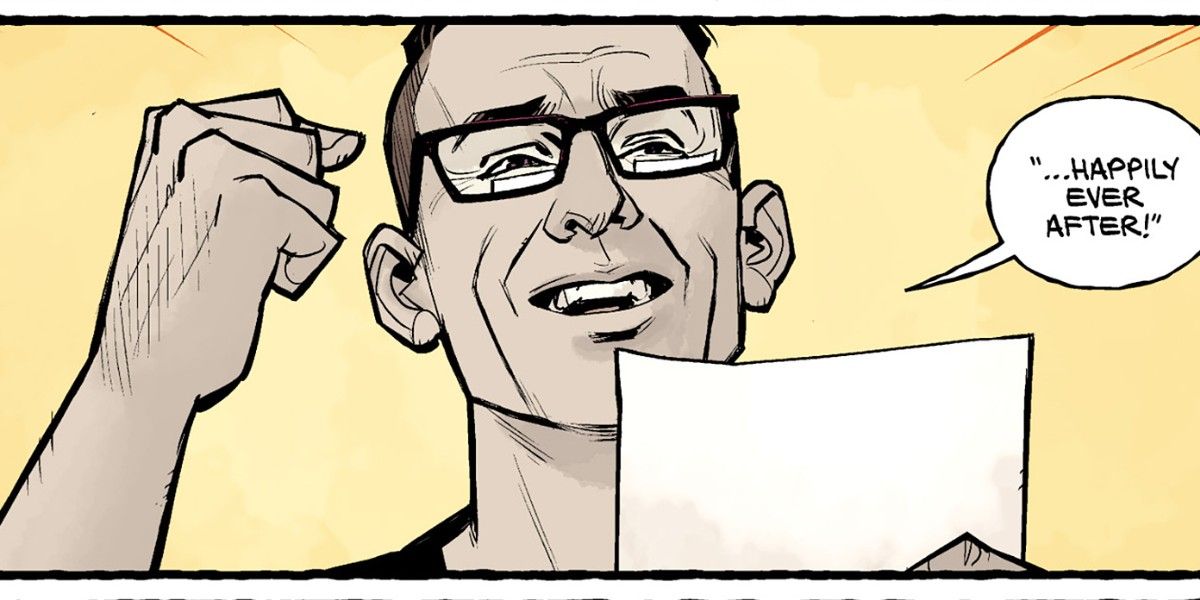Chuck Palahniuk's Fight Club was released in 1996. However, it was the 1999 film with the same name starring Edward Norton, Brad Pitt and Helena Bonham Carter that made Tyler Durden a household name. Fight Club is now hands-down a cult classic -- and fans have long urged Palahniuk to deliver a sequel expanding on Tyler Durden's story. Fans never got to see Pitt and Norton reprise their roles on the silver screen, but Dark Horse Comics expanded Tyler Durden's reach through two sequel comics: Fight Club 2 and Fight Club 3.
The sequel comics are also written by Palahniuk and follow the narrator's life after the events of the film. Fight Club's universe acts like a nihilistic thought experiment through the lens of an anarchist's playbook full of clever writing, callbacks and meta fourth wall breaks.
Ten years after the original story concludes, the narrator -- now calling himself Sebastian -- lives a subdued life married to Marla Singer and taking care of their child. He's been medicated for nearly a decade to suppress Tyler Durden's maniacal ways. However, Marla's not satisfied by their subdued sex life and embarks on an affair -- with Tyler Durden. She cuts Sebastian's meds and Tyler Durden starts reappearing, which thrusts Sebastian and Marla's life back into chaos.
Fight Club's sequels take Sebastian on a spiraling adventure through his own world, which has been poisoned by Tyler Durden since he was a child. Fight Club 2 reveals Tyler Durden killed the narrator's parents to secure his hold on the narrators' mind. He tries to take control of Marla and Sebastian's child to continue Project Mayhem, which has been rebranded as Rize or Die. The narrator goes to war against Tyler Durden to save his son from Tyler's twisted influence.
Fight Club 3 is a family affair as it forces an unlikely alliance between the narrator, Tyler Durden and their son to stop Rize or Die from fine-tuning the world in their vision.
Who is Tyler Durden? That isn't the right question. The correct question is, what is Tyler Durden? The comics provide the answer: Dr. Wrong says, "He's an archetype. Tyler works like a superstition or a prejudice. He becomes part of the lens through which you see the world." Dark Horse's Fight Club sequels take the idea of Tyler Durden beyond mere mental illness and expand it into a supernatural, anarchist manifesto brought to life. It's a sinister idea that spreads like a virus through the heart and minds of a susceptible population, weakened by decades of TV dinners and trips to IKEA.
The Fight Club universe is well aware of itself and that plays out through the comic's panels. The comic features real-life Fight Club spin-off clubs, like Write Klub. Palahniuk also discusses Fight Club 2's ending -- on panel -- with other members of the club. Tyler dies in the nuclear holocaust of his own creation, to the chagrin of his fans. An angry mob of Tyler Durden fanboys confronts Palahniuk and debate the ending's validity, making Fight Club 2's ending the definition of meta. Tyler Durden emerges from the crowd and kills Palahniuk before he can write a new ending to really kill him off.
Fight Club 3 carries on the tradition of covering up panels with objects and animals like flies, butterflies and prescription pills. Some panels even have dialogue or characters covered up. This leaves the reader to fill in the vague holes with their own explanations and theories. Taking readers out of the story to remind them they're looking at a comic book panel is eerily reminiscent of Brad Pitt breaking the fourth wall by staring into the camera, talking directly to the viewer in Fight Club.
The dilapidated house on Paper street, off-the-wall support groups and Robert Paulson all weave their way into the Fight Club comics. While the original story is over 20 years old, these callbacks are integral to Fight Club's core and the sequels couldn't exist without them. These comics seamlessly integrate central themes from the original story into new examinations of Tyler Durden and his place in the world. One of those ideas is summed up by a single Dr. Wrong quote at the end of Fight Club 2 #6: "My point is, human beings don't cultivate ideas. On the contrary. Ideas cultivate us."




